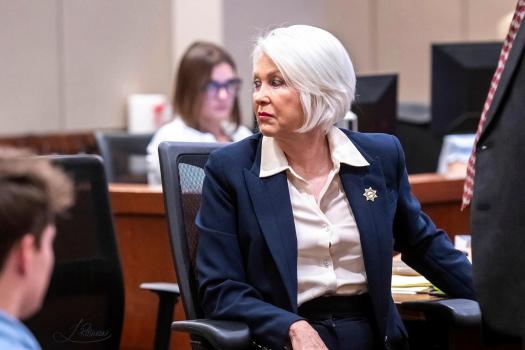Tina Peters: The Ongoing Legal and Political Battle
Tina Peters, the former Mesa County Clerk, remains a central figure in the debate over election security and political transparency in Colorado. Peters' journey from county official to high-profile defendant has attracted national attention, with legal and political developments unfolding rapidly around her case.

Who Is Tina Peters?
Tina Peters served as Mesa County’s Clerk and Recorder. She rose to national prominence due to her involvement in an alleged voting equipment breach after the 2020 presidential election. As legal actions mounted, Peters framed herself as a defender of election transparency, while critics viewed her actions as a threat to election integrity.
Legal Challenges and Conviction
In October 2024, Tina Peters was convicted for her role in a voting data scheme. She is currently serving a nine-year sentence in the Colorado Department of Corrections. The Denver Post reported that Peters was found guilty of election interference and misconduct related to the security of Mesa County’s voting processes.
While Peters appeals her 2024 conviction, her legal team has filed a federal petition for her release. However, a federal judge recently flagged issues with her petition, noting it contained both "exhausted and unexhausted" claims and may face dismissal. Colorado Politics detailed that her First Amendment claims were reviewed, but other arguments have not been fully presented to higher courts.
Political Spotlight and National Intervention
Peters’ case has not only been a legal matter; it’s moved into the political arena. Former President Donald Trump has called for her release, describing her as a "hostage" and claiming her prosecution is politically motivated. In a recent social media post, Trump even directed the Department of Justice to take action for Peters’ release. Colorado Public Radio confirmed Trump’s interest and the unprecedented federal involvement in a state criminal case.
This high-profile attention has thrust Tina Peters into the national spotlight. The Justice Department’s entry into the case underscores wider debates about the intersection of politics and legal proceedings, especially in high-stakes election-related matters.
What Happens Next?
The next chapter in Tina Peters’ story is uncertain. The federal court has given her team 30 days to amend her petition or withdraw it for now. Meanwhile, Colorado's legal authorities maintain confidence in their conviction, standing by the integrity of the process. Regardless of the outcome, Peters’ case will likely influence future conversations about election security, judicial process, and political advocacy.
For ongoing updates on Tina Peters and related legal developments, follow reputable news sources and stay informed about changes in Colorado’s political landscape.